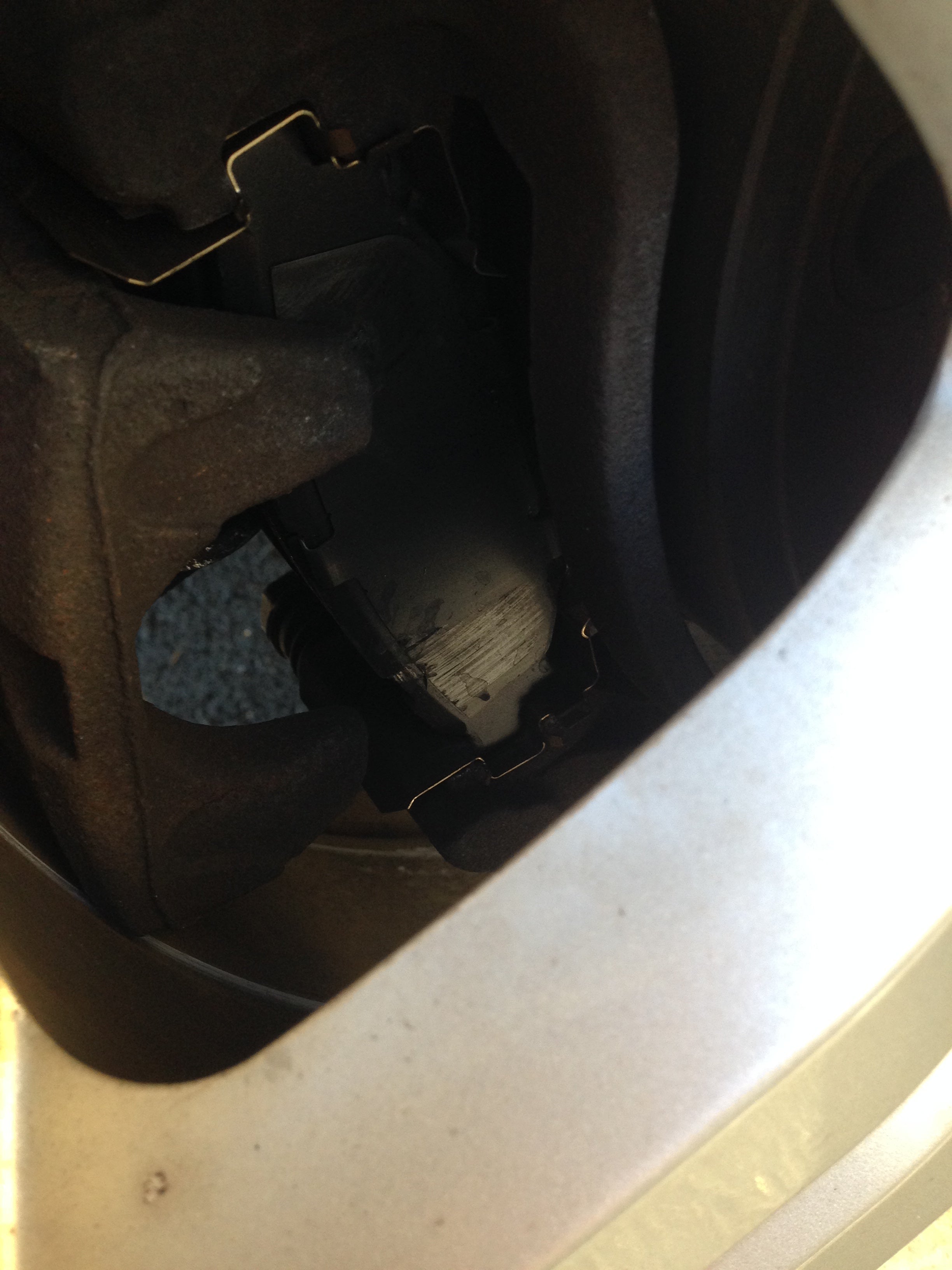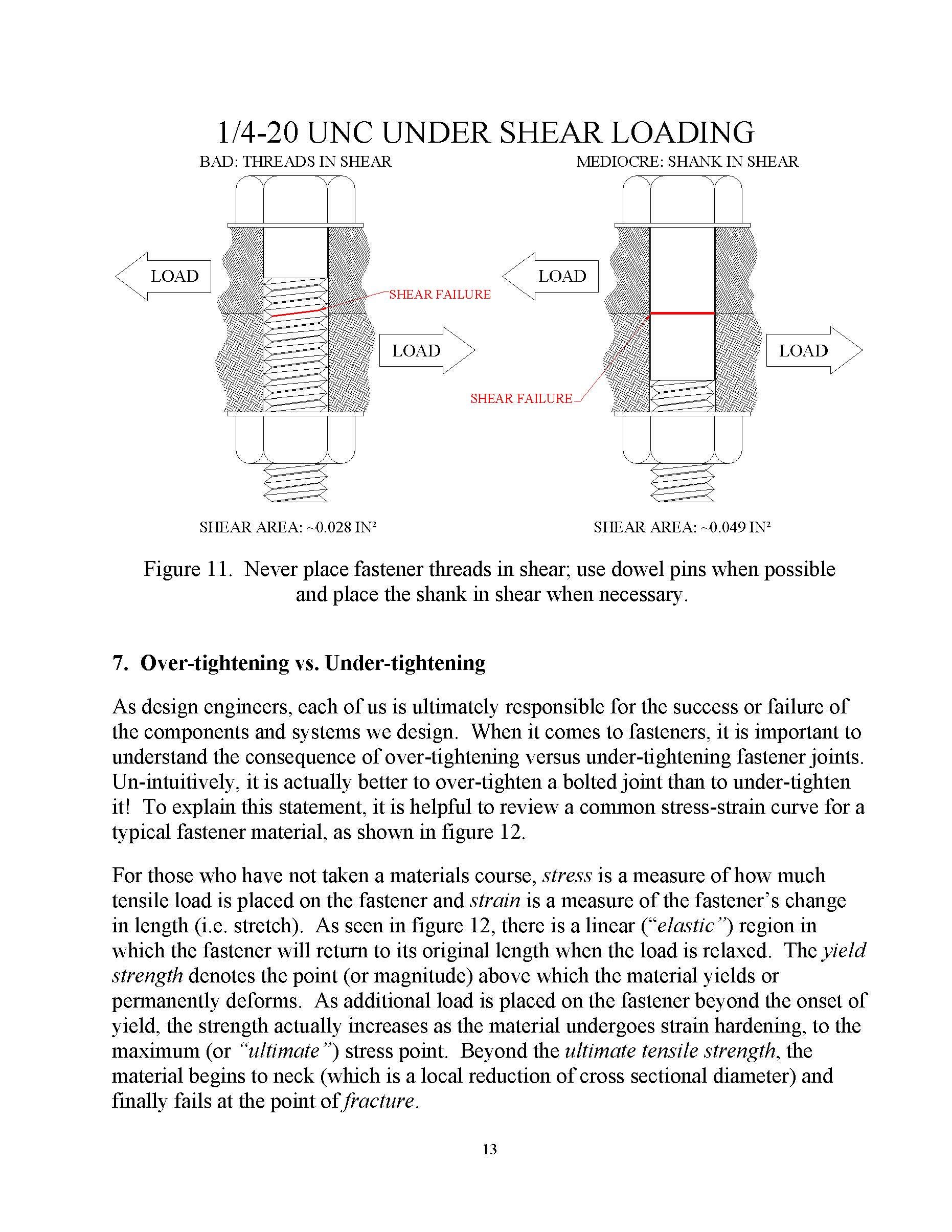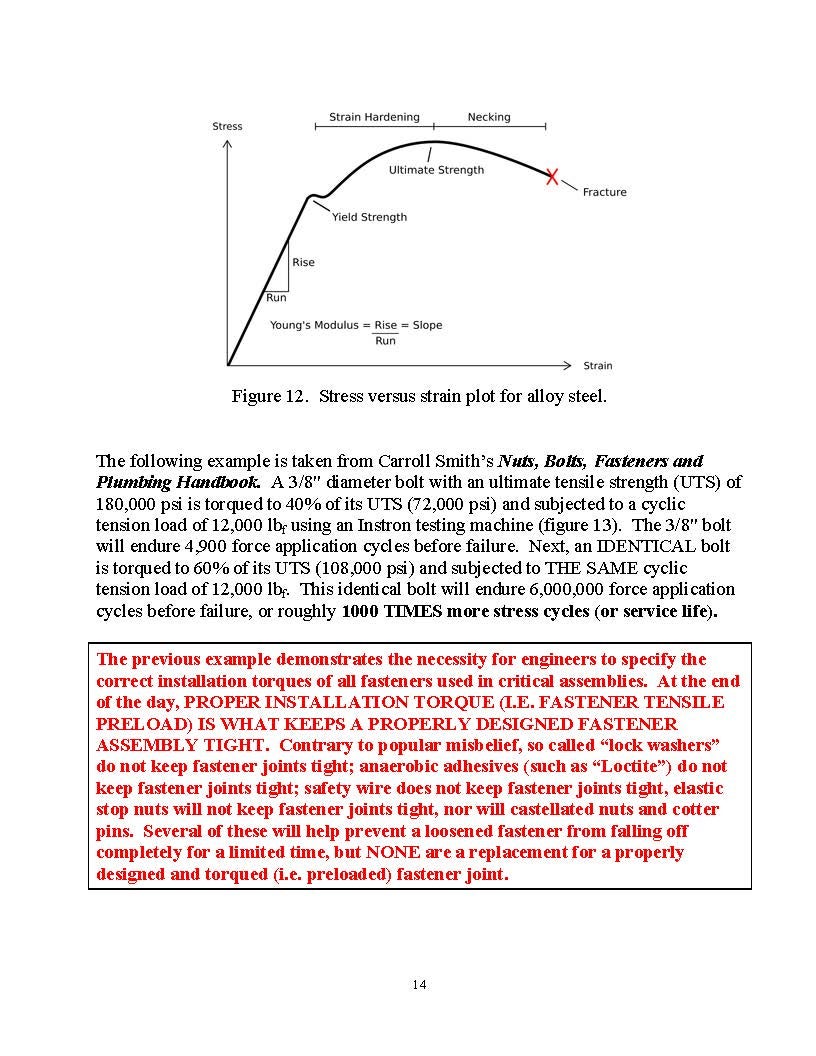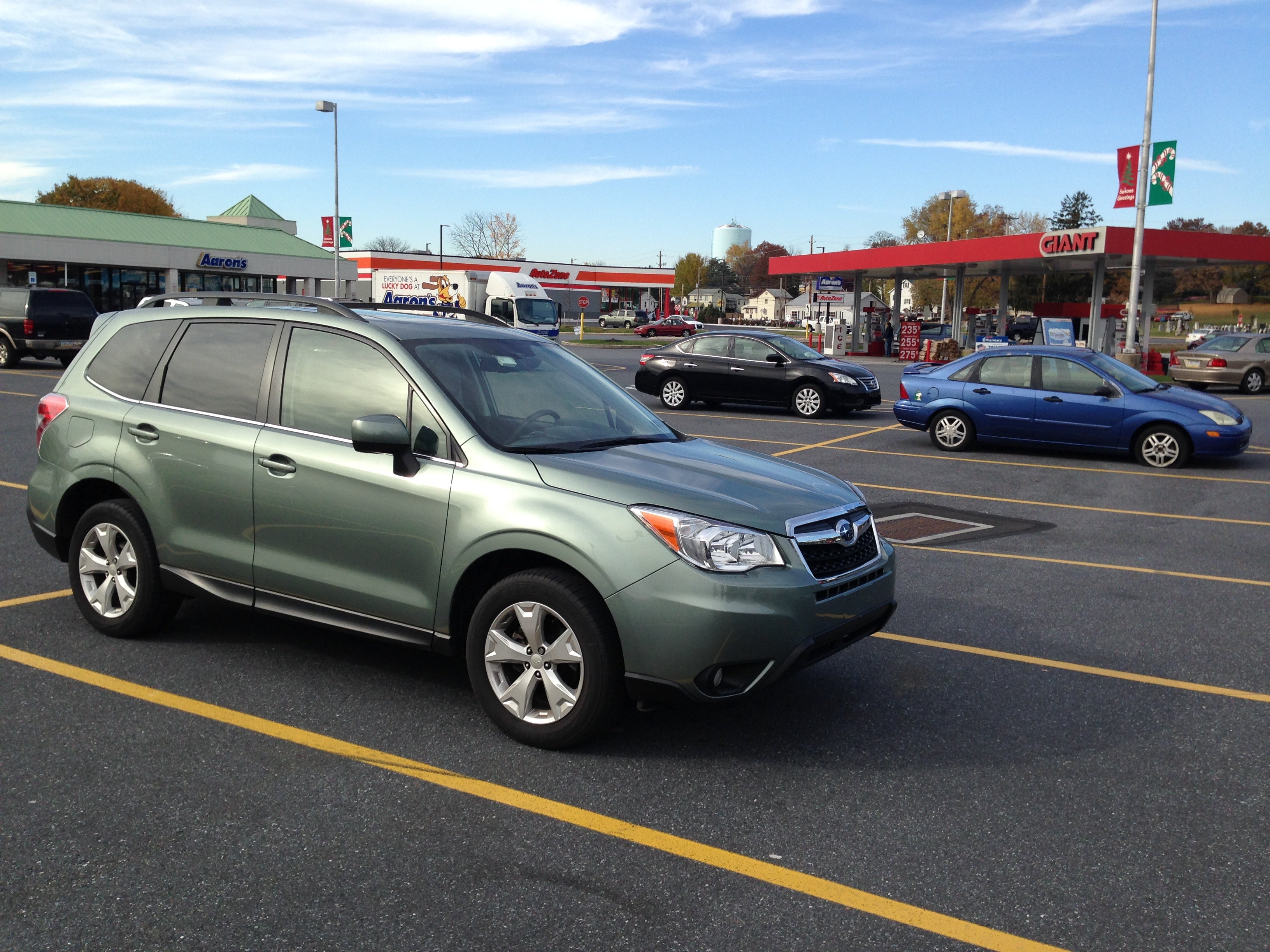 "Boxer_4" (Boxer_4)
"Boxer_4" (Boxer_4)
11/15/2016 at 19:46 • Filed to: None
 1
1
 7
7
 "Boxer_4" (Boxer_4)
"Boxer_4" (Boxer_4)
11/15/2016 at 19:46 • Filed to: None |  1 1
|  7 7 |

You may have seen my post on Saturday regarding my morning !!!error: Indecipherable SUB-paragraph formatting!!! . Well, all was repaired yesterday and the car is back home now. It’s suspected that the bottom caliper bolt was under-torqued when the dealer did my brakes, and during braking repeatedly over the last 3 weeks the bolt sheared. Thinking now, I did hear what sounded like a large stone thrown in the wheel well earlier on Saturday...
I posted some of the above a bit earlier today, but I wanted to make it more informative.
Now, what would cause an under-torqued bolt to shear? First a little background on what torquing a bolt actually does:
All metals have at least some elastic properies, meaning they can be stretched or compressed. When you torque a bolt, you are actually ever so slightly streching that bolt. The bolt naturally wants to return to its original length. So, by stretching the bolt, you are applying a clamping force between the bolt and the part the bolt is threaded into as the bolt tries to return to its original length. This clamping force, also known as pre-load, helps prevent the bolt in the bolted assembly from loosening over time due to vibration.
That’s great, but what causes a under-torqued bolt to shear? Fatigue
Fatigue failure happens over time as the object in question is repeatedly loaded and unloaded (such as your caliper bolts during braking). This is also known as cyclic loading. Different metals behave differently in regards to fatigue. Steel, for example, will not fail due to fatigue as long as the amount of the applied load is low enough. Aluminum will fail over time due to fatigue, regardless of the amount of load repeatedly applied (low amounts of load will take a while to cause failure, however). An under torqued bolt will see a higher level cyclic loading than a properly torqued bolt (
!!!error: Indecipherable SUB-paragraph formatting!!!
).
Let’s dive into a simple example, provided by the Department of Mechanical and Aerospace Engineering of the University of Florida. It should be noted that the example is testing tensile (pulling in the direction of the central axis), rather than shear, but the same idea applies.
(
!!!error: Indecipherable SUB-paragraph formatting!!!
):


In the example above, two bolts of the same specifications are torqued to 40% and 60% of its Ultimate Tensile Strength (UTS, the maximum load the bolt can take along its central axis before failing) respectively, and are both tested in the same manner. The bolt torqued to 40% of its UTS withstood
4,900
testing cycles before failing, while the bolt torqued to 60% of its UTS withstood
6,000,000
testing cycles before failing.
Torquing bolts to the manufacturer’s specification is very important!
As for the repair, the bottom caliper slide pin and bolt were replaced on that wheel, and the rest of the job was completely rechecked by the “chief mechanic”. The wheel wasn’t actually damaged from the brake caliper rubbing against it. Only the finish on inside “barrel” was scratched off (three of the four wheels , including this one, already have the finish peeling off the inner “barrel” anyway).
The morals of this story: don’t bring your car to a shop, even a dealer, on a Saturday. Even better, just to the work yourself. And always, always, always, torque a bolt to the proper specification where the manufacturer calls for it!

Yes, I know I could have pulled up...
As an aside, this is my ride for the week. While my ‘09 is done, I don’t have the time this week to go home and get it. Therefore, this ‘15 Forester I borrowed from my mom will have to do (she agreed to take my car for the week after it was repaired). I’ve driven it before, but this is the first time I’ve had it myself for more than a day. First impressions; it’s quite nice. In fact, I might actually sort of like it. Look for something resembling a full review later this week.
 You can tell a Finn but you can't tell him much
> Boxer_4
You can tell a Finn but you can't tell him much
> Boxer_4
11/15/2016 at 19:59 |
|
This is why I don’t even care when my buddies mock me for using a torque wrench on lug nuts. In related news I put the winter tires on my car today and was mocked for using a torque wrench.
 Urambo Tauro
> Boxer_4
Urambo Tauro
> Boxer_4
11/15/2016 at 20:01 |
|
Did you make this presentation just for us, or was this your lecture to the mechanic? :)
Either way, well done!
 e36Jeff now drives a ZHP
> You can tell a Finn but you can't tell him much
e36Jeff now drives a ZHP
> You can tell a Finn but you can't tell him much
11/15/2016 at 20:08 |
|
I have never not used a torque wrench on a lug nut/bolt, and, aside from a side of the road tire swap, would never fathom not using one. Your buddies are idiots(at least about this one thing).
 Berang
> Boxer_4
Berang
> Boxer_4
11/15/2016 at 20:44 |
|
I remember as a kid being surprised that bearings which were adjusted too loose could result in a cracked bearing cup.
 norskracer98-ExploringTheOutback
> Boxer_4
norskracer98-ExploringTheOutback
> Boxer_4
11/15/2016 at 22:34 |
|
Not as bad as my brakes. My outer pad disintegrated and inner pad is only metal, and there’s like no brake fluid left because of the caliper piston popping out. Shouldn’t have tried to wait until I got home from school for break to fix that.
Hindsight, however, is 20/20.
 Boxer_4
> Urambo Tauro
Boxer_4
> Urambo Tauro
11/16/2016 at 21:16 |
|
Thanks! It was a little of both.
 Boxer_4
> You can tell a Finn but you can't tell him much
Boxer_4
> You can tell a Finn but you can't tell him much
11/16/2016 at 21:17 |
|
Next time one of your buddies mocks you for using a torque wrench on your wheels, you have my permission to beat them over the head with said torque wrench.
Just make sure you get it re-calibrated afterwards!